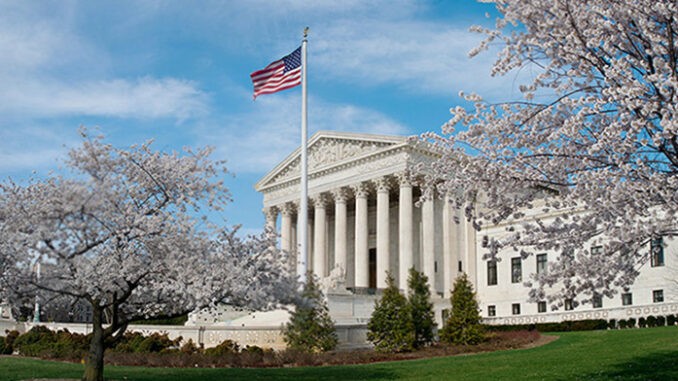
Yet another federal election challenge with ties to Arizona appears headed to the U.S. Supreme Court, but whether the Justices will hear the case or any of the others already docketed before Wednesday’s joint session of Congress is anyone’s guess.
Last week a federal judge in Texas dismissed an attempt by Texas Rep. Louie Gohmert and 11 Arizona Republicans to have the Electoral Count Act declared constitutional, a move they believe will give Vice President Mike Pence more power as the President of the U.S. Senate in counting or not counting various states’ electoral votes.
Not only did Pence argue that the case should be dismissed -he said the U.S. House of Representatives and the U.S. Senate should have been sued instead- but attorneys for the U.S. House contended the relief requested by Gohmert and the Arizonans would authorize Pence to determine the winner “in an election in which he is a candidate.”
“Granting such power to the Vice President would be at odds with the Constitution’s numerous provisions designed to avoid conflicts of interest of this type and with basic principles of democratic governance,” the House of Representative’s opposition brief stated.
.
The federal judge ruled the plaintiffs lacked standing to bring the suit, and over the weekend the U.S. Fifth Circuit Court of Appeals refused to take the case. That leaves a petition to the U.S. Supreme Court as the final judicial option with just a bit more than 48 hours before Congress convenes to count the votes of the U.S. Electoral College.
However, there is no set timeline for when the Justices must decide to hear a case, and some legal experts believe the Court may wait to see what happens Jan. 6.
Meanwhile, attorneys representing Republican voters and would-be presidential electors in Arizona, Georgia, Michigan, and Wisconsin are awaiting word from the U.S. Supreme Court on whether four pending election challenges will be consolidated for expedited review. In all four states, Republican litigants contend improper exemptions or procedural changes were made to elections laws at the last minute which led to illegally counted votes. Some, including Arizona, also allege voter fraud and even vote count data manipulation.
The Arizona case filed against Gov. Doug Ducey and Secretary of State Katie Hobbs in federal court seeks to de-certify former Vice President Joe Biden’s 10,457 vote win over Trump due to “fraud and voter irregularities” particularly in Maricopa County. The state also was ordered by a federal judge to extend the statutory voter registration period by several days, contrary to Arizona law.
Some court observers believe Justice Brett Kavanaugh will be a strong advocate for hearing one or more of the cases, even if it is to simply provide future guidance instead of impacting the 2020 General Election.
“Under the U.S. Constitution, the state courts do not have a blank check to rewrite state election laws for federal elections,” Kavanaugh recently wrote in a decision concerning a Wisconsin election challenge. “The text of Article II means that the ‘clearly expressed intent of the legislature must prevail’ and that a state court may not depart from the state election code enacted by the legislature.”
Lost in the current election court battles is the fact two Arizona voter-access cases have been consolidated and will be heard by the Supreme Court on March 2.
The cases involve Attorney General Mark Brnovich, the Democratic National Committee, and the Arizona Republican Party in a set of disputes initiated after the 2018 election over who can legally deliver a voter’s cast ballot to the mailbox or a voting box and whether ballots cast outside a voter’s assigned precinct in their county should be counted.
